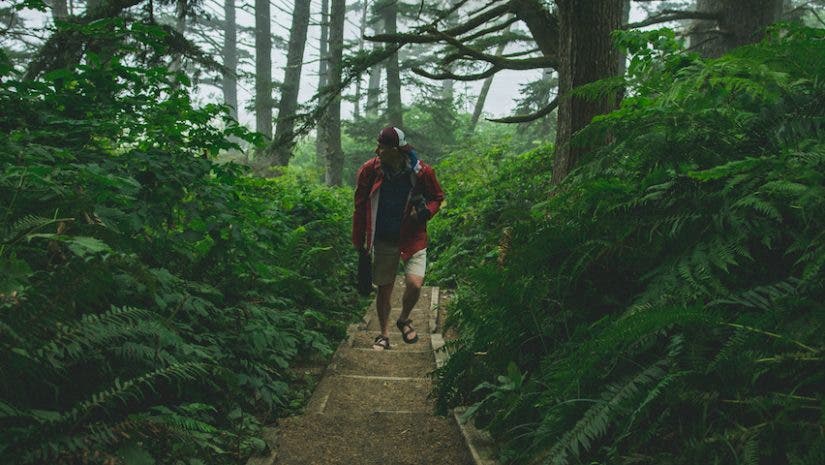It’s the number one question I get asked, whether it’s in conversation or on social media: “How do I get into travel photography?” And I always try to tell them the truth, and that while it’s amazing and an incredible job to get into (and there are many reasons why it’s so rewarding), travel photography is also very challenging, and has its difficulties, much like any job.
Yes, you get to travel and see some of the best places this world has to offer and work with some amazing brands and clients. But traveling and constantly being away from home can have its issues and downsides you have to prepare for before you jet set.
My hope is that these truths will prepare you for the realities of the job.
1. It’s hard work, not vacation

Travel photography is hard work — it’s not the vacation it appears to be. Yes, you might get to stay at a nice hotel or do an amazing sightseeing tour, but you are rarely relaxing. Your working hours can range from 3am to 11pm, and even later. Sometimes, it takes driving through the night and sleeping in your car to get the shot you’re looking for (trust me, I’ve done this, and it’s not exactly fun, though it does provide a lot of funny memories).
When you’re on a job, you’re always on, whether that’s shooting, organizing, or post production. You’re always doing something, and if you’re not, you’re normally taking a quick nap to recharge for the next shoot. You’re rarely sitting on a beach, sipping on margaritas (even if you do happen to snap a beach photo here and there). In fact, you’ll most likely be drinking lots of coffee instead. So don’t go into travel photography thinking it’ll be a walk in the park, and the vacation you’ve always wanted. You will work, and you will work hard.
2. You need to be in good shape

Now, I don’t mean you need a six pack to participate in travel photography, but you will need to be fit enough to power through long days, not just physically, but mentally, too. Sometimes, jobs require you to hike 10 miles with an additional 3,500 feet of elevation gain. It’s very rare that photoshoot locations are right off the side of the highway. You have to work for your content, and if you aren’t prepared physically, it’ll be a rude awakening as you’re struggling to get to the predetermined location.
But more than physically, it’s the mental preparedness that’s really needed. You have to make sure you are organized, prepared, and can react with quick decisions in important situations. You have to be on top of your game and always be learning, through other photographers and videographers, or you’ll never grow or get better.
3. You can have too much of a good thing

In travel photography, it’s a good thing when you start landing clients and jobs, and the money starts to flow in. However, it’s important to realize that you can have too much of a good thing and stretch yourself too thin, and then you come away from a trip with poor content and results. The fear of burning out is very, very real.
I remember reading about fishing boats off the coast of Alaska, and a crew that, after a long period of time without catching any fish, suddenly happened upon a school that contained thousands. However, because of their excitement and desire to catch all they could, they forgot their boat’s weight limit, and tried to bring in a catch that eventually sunk their vessel. Too much of a good thing is sometimes not a good thing, as they found out.
This can happen in travel photography, as well. You have periods of no work, and then suddenly, you there are so many bites on your line and you’re catching gig after gig. It’s important to take a pause and have realistic expectations on what you can accomplish in one trip with your team or by yourself. I’ve been on a trip and had so much client work I was bringing along with me, and it made my trip less productive. I figuratively sunk my boat, and I never wanted to do that again. Remember to always be realistic, never get too excited or greedy, and plan your client work out so you don’t sink from the weight.
4. You need good balance

As a travel photographer, you sometimes find yourself away for more time than at home. While that can be exciting, I’ve learned that if you don’t have a good balance of home and away, it’ll be very difficult on both your work and your personal life.
Your home or place of residence is where you recharge and reconnect. It’s where you have community and people in your life that support and love you. You need to give balance to that aspect of your life, and not let travel and work completely flood your calendar. No matter if you are an introvert or extrovert, human beings need to feel connected outside of work and need time pour into the places where they live and call home.
This is something I learned quickly. I kept feeling distant and disconnected from where I lived, not realizing it was because I wasn’t giving enough time to the most important people in my life — my family and friends. Like any job, you need balance, and if you have it, you’ll benefit from it in more ways than one, and your career as a photographer will strengthen as well.
5. Breaks are important

Who would think that putting a camera down and resting is important to becoming a better photographer? But it’s so true.
As a creative, I get burned out and tired. I become impassioned and that shows in my work, but if you’re not careful, that drive and eagerness can lead to serious burnout. It’s important to take time to step away from the camera and traveling, and just recharge at home. Spend time with friends or family, read a book, or simply get outside, or go to the gym. Have an escape from your work, and do it often.
Listen to your mind and body. If you feel like you need a break, take it. Be honest with yourself and your clients, because if you come back from a trip and it yields poor results, you may lose the trust of your clients and more importantly, you’ll lose confidence in your abilities.
I’ve shared before that I’m always going and always looking for the next opportunity, but resting and taking a break from your craft can take you to the next level. You’ll come back from your time off more creative, more inspired, and fully recharged, ready to tackle any job on your schedule.
Travel photography is amazing. I wake up every day with a smile on my face and can say that I love what I do. It has turned into a fantastic, creative outlet for me and is a great way to network, build relationships with incredible clients and brands, and allows me to provide for my wife and my future family, all while experiencing this beautiful world.
But it is not all sunshine and roses. Believe me, I’m grateful, but it is difficult work, and it can turn into a burden if you don’t realize the realities of the job. The most important advice I have? Do travel photography because you are passionate about it, not just because it looks fun or exciting. Do it because you love it, not to impress people on social media, because the glossy allure of those photos will eventually wear off and you’ll be left asking why you did it. If you go into this field with an authentic love for it, you’ll be much better off in the end.






